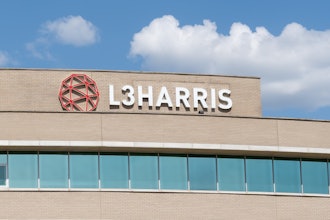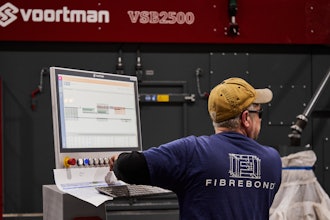Illinois farmers launched a new public relations campaign Tuesday to improve their image after research showed that consumers like farmers but have doubts about modern farming methods.
Groups representing corn, soybean and livestock farmers announced the campaign at the Illinois State Fair. Representatives said they're particularly concerned about the effect movies such as "King Corn" And "Food, Inc." — both critical of large-scale farming practices — on public perceptions about food safety and environmental damage to land and water.
"Some folks are trying to discredit agriculture," said Donna Jeschke, 57, whose family grows corn and soybeans in Mazon in northeastern Illinois. "A lot of people don't know that because of technology that we're doing a lot more with less."
The campaign financed by the Illinois Beef Association, Illinois Corn Marketing Board, Illinois Soybean Association and other groups is based on research conducted by the Milwaukee-based firm Morgan & Myres. It found people in Illinois generally look favorably on farmers but they question farming methods used in large-scale production and the use of genetically modified crops.
Consumers appear particularly concerned about "factory farms" and the idea that more of their food comes from a smaller and smaller number of very large farms, the farm groups said.
Less than 6 percent of farms nationwide — those that bring in more than $1 million a year — accounted for nearly 60 percent of farm sales in 2007.
But most of those big farms that bring in $1 million or more a year are still owned by families such as hers, Jeschke said. The Jeschkes and extended family farm about 3,500 acres, sharing labor and equipment costs.
"Because we farm with my brother and his wife, we can afford some of the technology a little bit more easily," she said.
But Bill Freese, a chemist with the Washington-based Center For Food Safety, said part of the problem with modern farming is that it's only profitable on a very large scale. When farms get that big, it's hard not to degrade the soil and pollute water through chemical runoff, said Freese, whose group promotes organic agriculture.
Mid-sized farms either have to grow, usually by relying more heavily on chemicals and genetically modified crops, or the farmers often must work part-time at something else to make money, he said.
"Any agricultural system and agricultural policy that makes it harder and harder for medium-sized families to make a living, something is seriously wrong," he said.
Farm groups have mounted a number of public relations campaigns in the past decade, particularly amid debates about federal farm subsidies, genetically modified crops and food safety issues.
The Illinois farm groups hope to speak out on all those issues. But they also hope to help farmers tell their own stories to a broader audience.
Donna Jeschke, whose family grows corn and soybeans on 3,500 acres in Mazon in northeastern Illinois, said the groups recently held their first training session to teach farmers to make better use of social media such as Facebook.
"We're hoping by doing that we can actually reach out with our message to our friends and neighbors, and consumers throughout the world," she said.
The farm groups involved in the campaign will meet next month to decide what further action to take, including the possibility of advertising, said Tricia Braid Terry, communications director for the Illinois Corn Marketing Board.






















